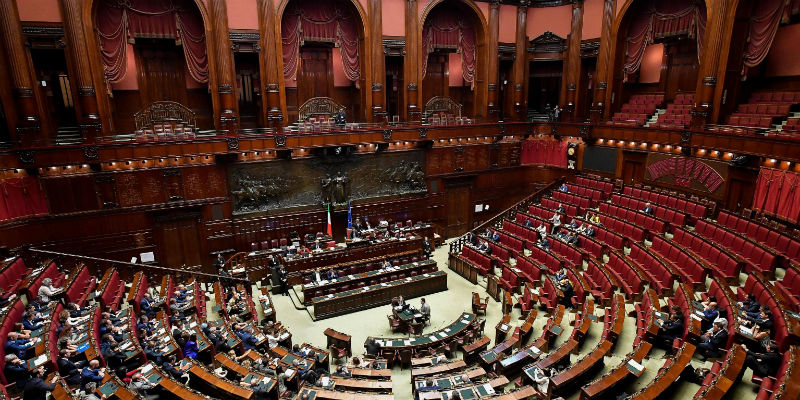Because it is crazy to think that a new electoral law is salvific

The ruminations on the urgency of a new law are back. Is just such a reform enough? The speech by Raffaele Lauro, general secretary of Unimpresa
While Prime Minister Draghi seems willing, forced by emergencies, to turbo up government activity – on pain of failure of the four main objectives (pandemic, NRP , structural reforms and economic and social recovery), to be achieved in the medium term and, in any case , before the political elections of 2023 – the debate between politicians and political scientists on the reform of the electoral law was rekindled like a sudden flare-up. The draft, improperly dubbed Germanicum (proportional, with a threshold of 5%, which would lead to the end of bipolarism, other than the German system!) And stalled in the last two years in the parliamentary quicksand, would have the aim of dismissing the much vilified Rosatellum (a mixed majority with the proportional!), Still in force today. It is confirmed, however, from the first interventions, that each political party wants to opt for the electoral system which, at the moment, is more suitable for them electorally, regardless of the arguments made in the past in favor of the opposite system.
Casual turns of waltz, therefore, among the promoters, since 1994, of the majority system, as they attributed to the proportional system the crisis of the parties, the bankruptcy, the illicit financing, the corruption and the end of the first republic, returned, today, to be proponents of the proportional, as, according to them, it would guarantee the freedom of choice of the voters (except, then, to betray it after the elections!). Among the neo-proportionalists, of course, there are also those who are nostalgic for a new center, coveted as the pivot of any future post-electoral alliance. Other ex-proportionalists, on the other hand, call for an even more incisive majority to consolidate bipolarism and favor pre-electoral alliances, with opposing programs to be submitted to the judgment of the electoral body, in order to guarantee the alternation of blocks to the government of the country. A mess of proposals, each pro domo (electoral) its own!
For their part, however, political scientists are scrambling to underline, unheard, that, between the two now ideologized poles, there are also intermediate electoral systems, with many variables: for example, a proportional system, with a threshold lower than 5 %, would not solve, but would aggravate party fragmentation and parliamentary balkanization, especially in the presence of a representation, drastically reduced to only 600 parliamentarians.
The conclusion on this debut of debate on the reform of the electoral law: the illusion remains that the crisis of political representation, as well as of the identity and social roots of parties, even more so in the era of digital culture, can be resolved through a miraculous reform of the electoral law, perhaps even more botched and the result of further compromises of the present. In the future, no trace will remain of the current debate, because it will be difficult, if not impossible, in this residual part of the legislature, to enact any reform, due to interdiction games and conflicting electoral interests. The crisis of our parliamentary democracy can be resolved, hopefully in the next legislature, with an organic constitutional reform, also including a complementary electoral law, which, in compliance with the principles of the 1948 charter, redesigns the balance between powers, in optics of a governability more suitable to face the complex challenges of contemporaneity.
This is a machine translation from Italian language of a post published on Start Magazine at the URL https://www.startmag.it/mondo/perche-e-folle-pensare-che-una-nuova-legge-elettorale-sia-salvifica/ on Wed, 02 Feb 2022 14:06:12 +0000.
